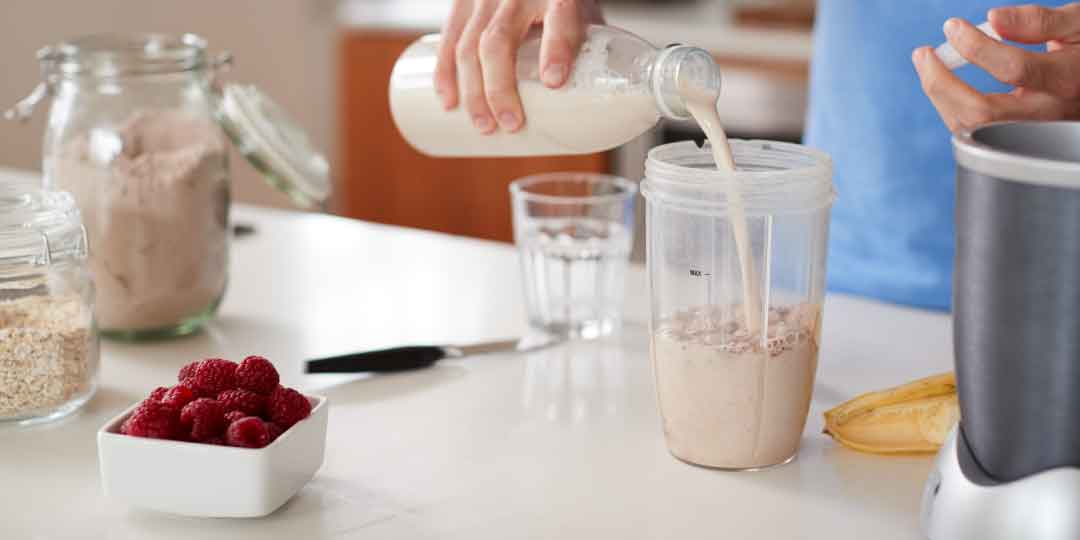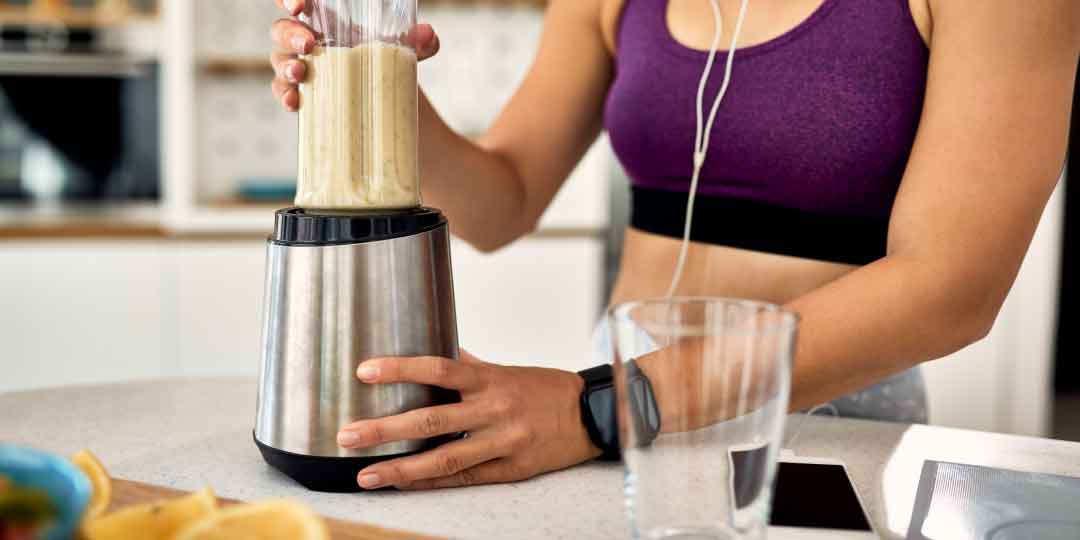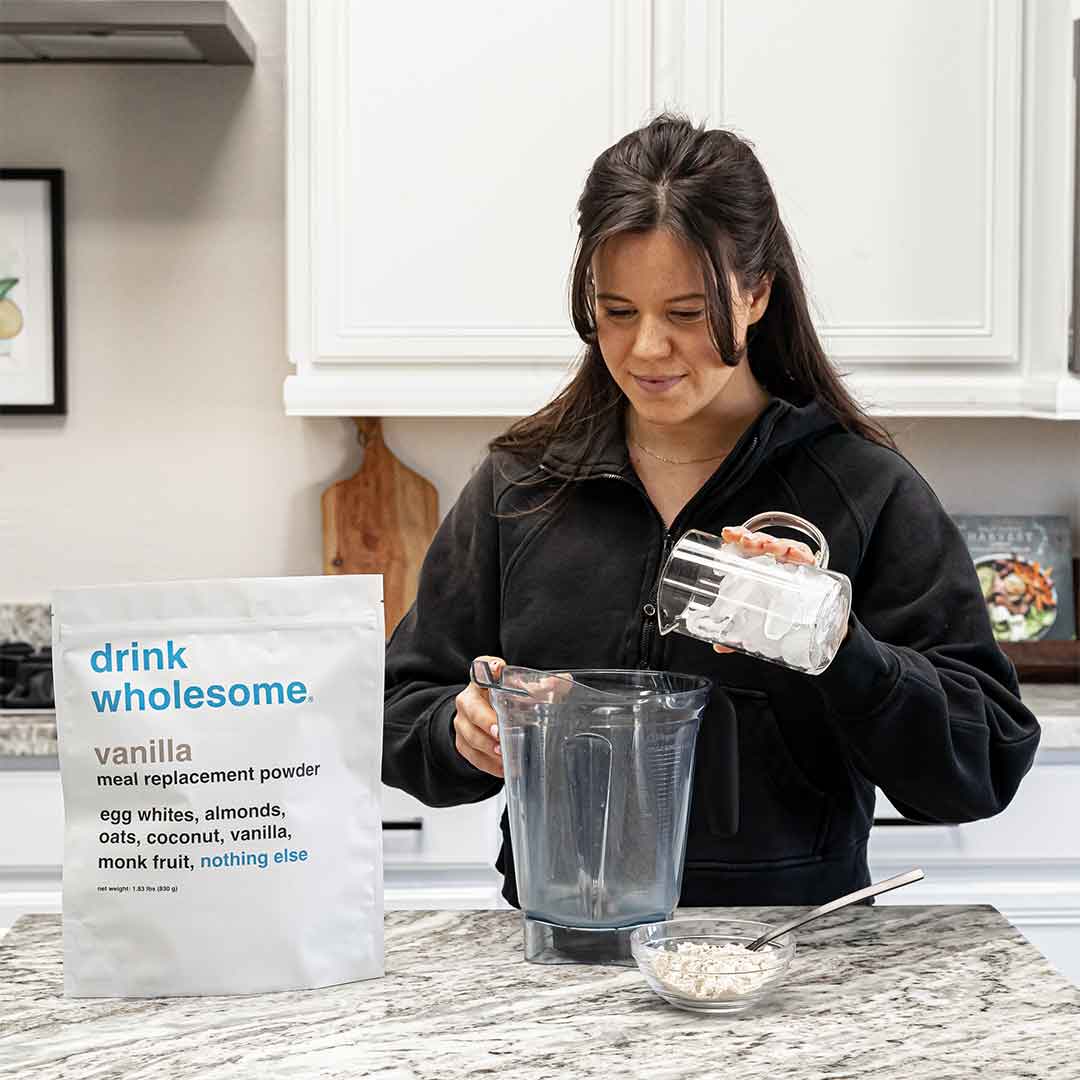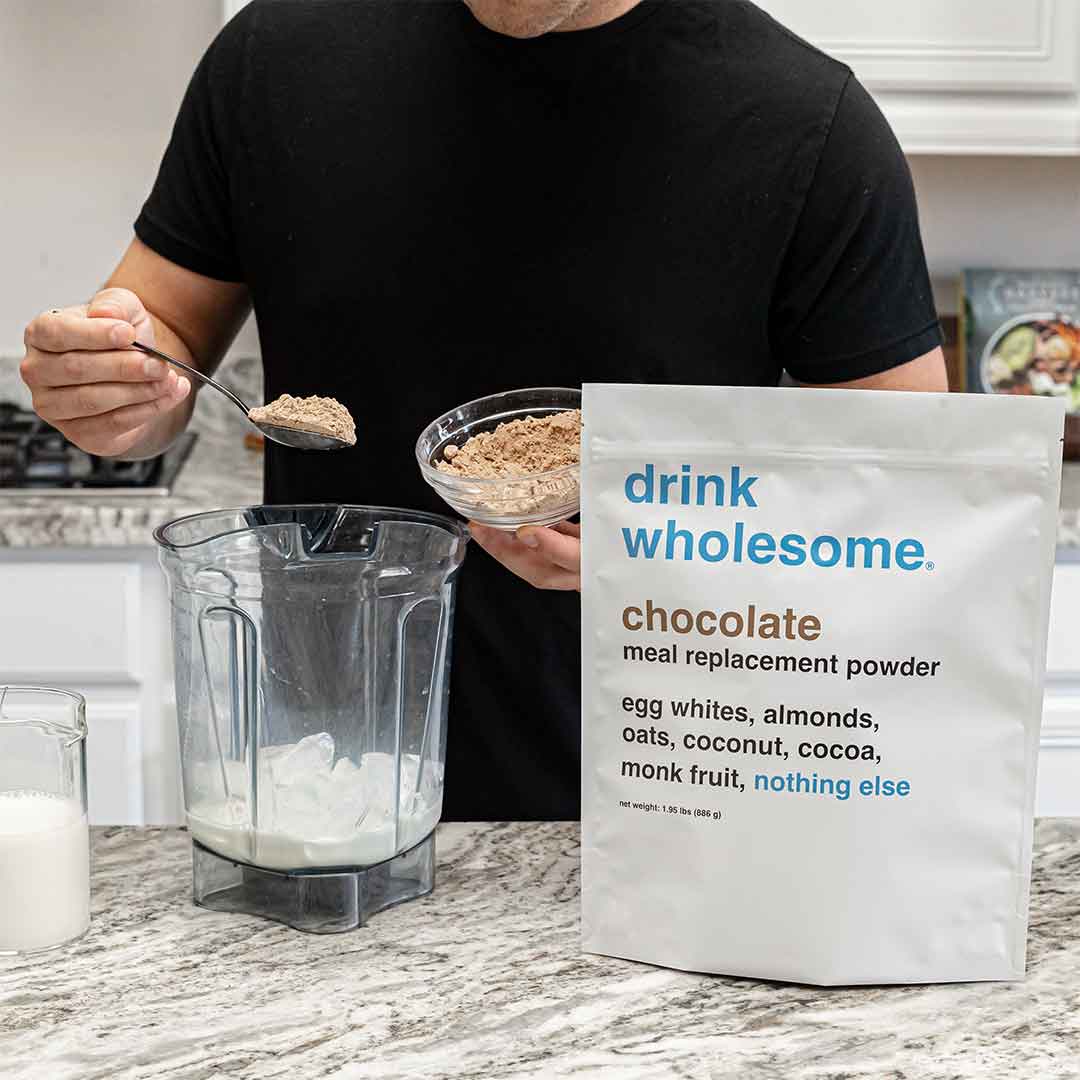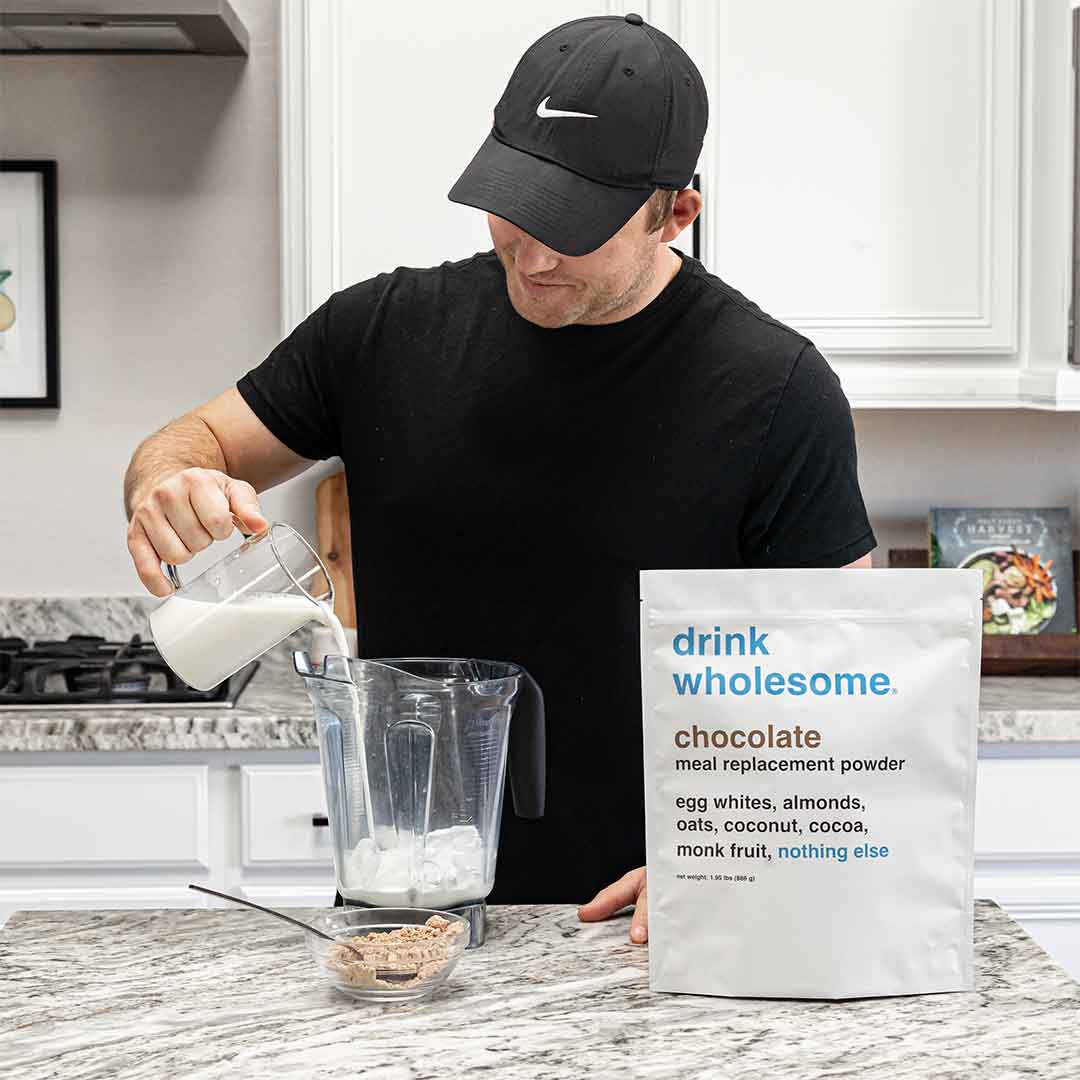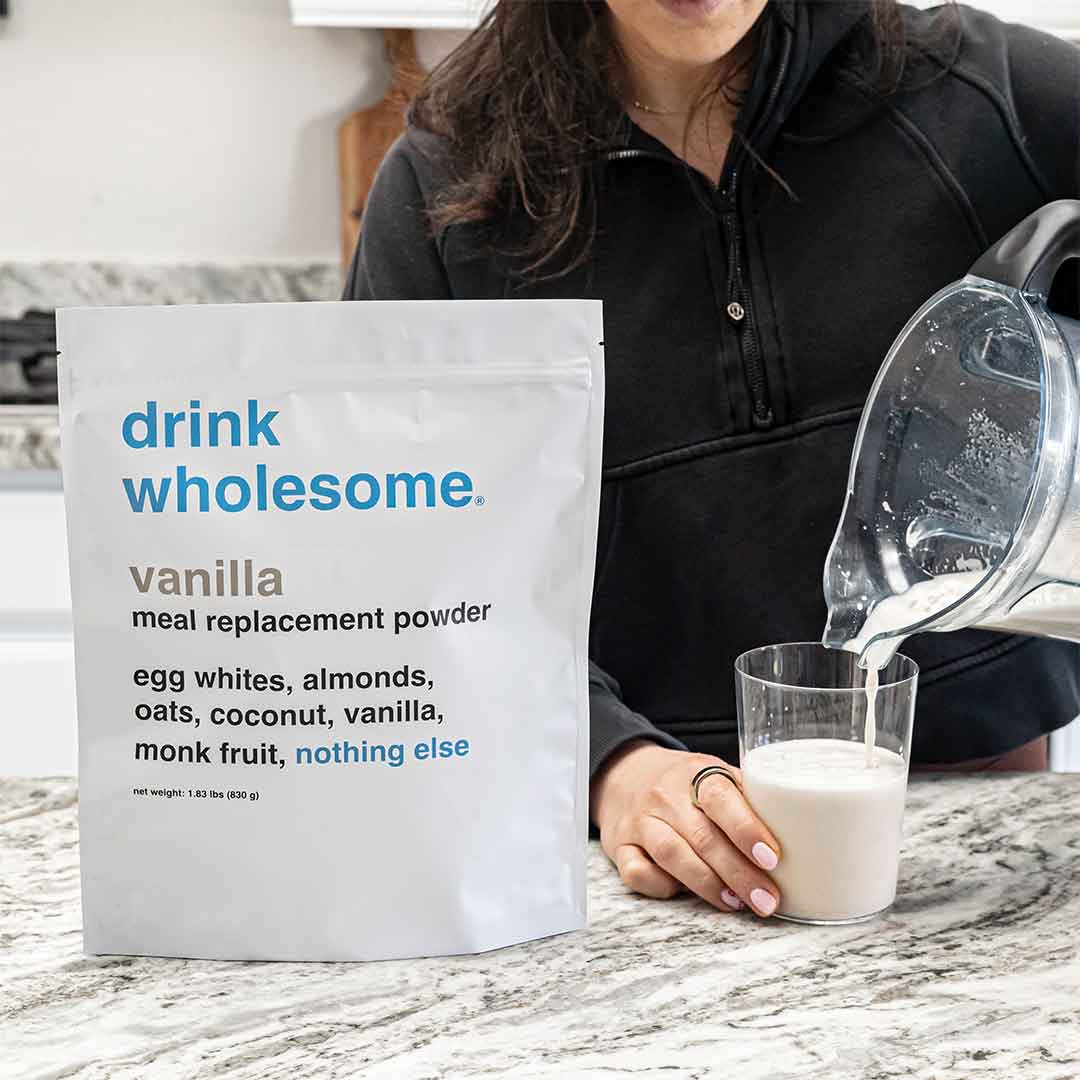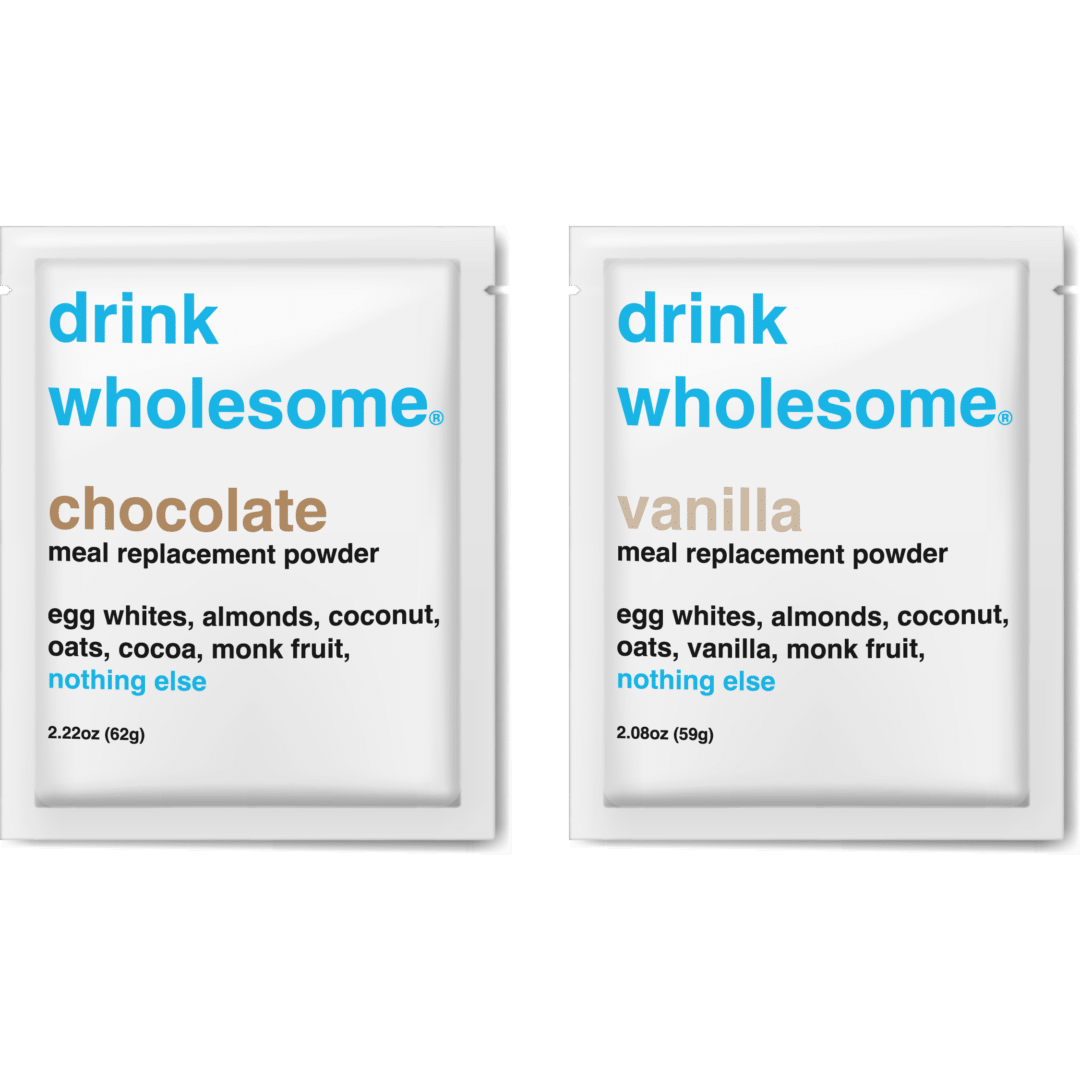Making a meal replacement smoothie from scratch.
To make a meal replacement smoothie from scratch, you are going to need a good blender. You are also going to need good sources of healthy fats, complex carbohydrates, and complete protein.
For fats, I recommend avocado and nut butter. For carbs, I recommend bananas and oats. For protein, I recommend either dried or liquid egg whites. I know this last one sounds weird, but egg whites are a delicious, easy to digest source of complete protein. Pasteurized egg whites are also perfectly safe to eat, and you cannot taste them in your smoothie.
Here is my favorite meal replacement smoothie recipe:
-1/2 avocado
-1/2 banana
-1 cup spinach*
-1/4 cup oats
-4 tbsp creamy peanut butter
-4 tbsp unflavored egg white protein powder
-1-2 cups dairy-free milk
*I add a cup of spinach for extra fiber.
This meal replacement smoothie is nutritionally balanced, filling, and affordable. It is a great way to powder your day, take care of your gut, and achieve your wellness goals. If this sounds like too much work, however, you may want to consider using a meal replacement powder.
Making a meal replacement smoothie with meal replacement powder.
If you value convenience, and do not want to have to worry about getting the right balance of nutrients, I recommend making meal replacement smoothies with meal replacement powder. All you have to do is mix the recommended serving size with 1-2 cups of milk or water. You do not even need a blender if you have a shaker bottle.
That said, not all meal replacement powders are created equal, and many contain the same additives found in ready-to-drink shakes! Keep reading to learn more.
One of the reasons why we make the best meal replacement powder is that we do not use any food additives like gums, lecithin, flavors, and artificial sweeteners. Even in small amounts, additives can cause painful side effects, especially if you have a sensitive stomach.
Food additives undergo such extensive processing that look nothing like real food. Consequently, they are challenging to digest, which gives your gut bacteria extra time to feast. As gut bacteria eat, they release gas, and the more time they have to eat, the more gas they release.
Too much intestinal gas can lead to uncomfortable symptoms like bloating, flatulence, and stomach pain. It also has the potential to slow down colonic transit – the time it takes for food to traverse the colon – resulting in constipation.
In certain instances, partially digested food additives can cause your colon to either absorb excess water or prevent it from absorbing water altogether. This phenomenon is known as osmotic diarrhea, and is the underlying reason why meal replacement shakes can send people rushing to the bathroom.
Here is a list of the most common food additives in meal replacement shakes:
acacia gum, acesulfame potassium, artificial flavors, aspartame, carrageenan, cellulose gum, dextrin, dextrose, erythritol, gellan gum, guar gum, gum arabic, inulin, locust bean gum, “natural” flavors, maltodextrin, rice syrup solids, soy lecithin, silica, sucralose, sunflower lecithin, xanthan gum, xylitol
Moreover, a diet rich in food additives has the potential to disrupt regulatory pathways within your intestines, contributing to the development of conditions like inflammatory bowel disease (IBD). Food additives, particularly artificial sweeteners and sugar alcohols, can also interfere with the delicate balance of your gut microbiome. This is a primary driver of inflammation and has been linked to various chronic diseases.


